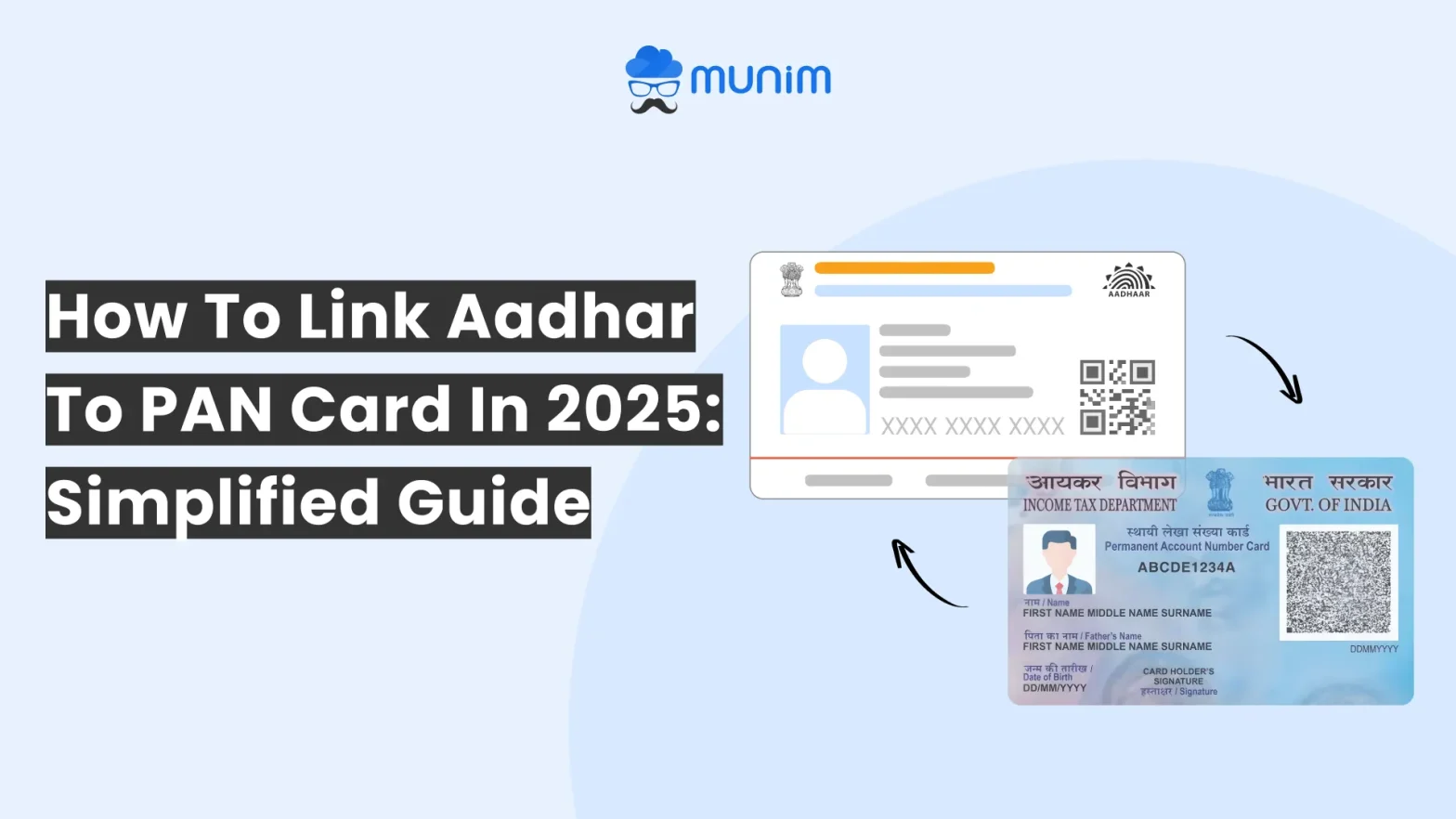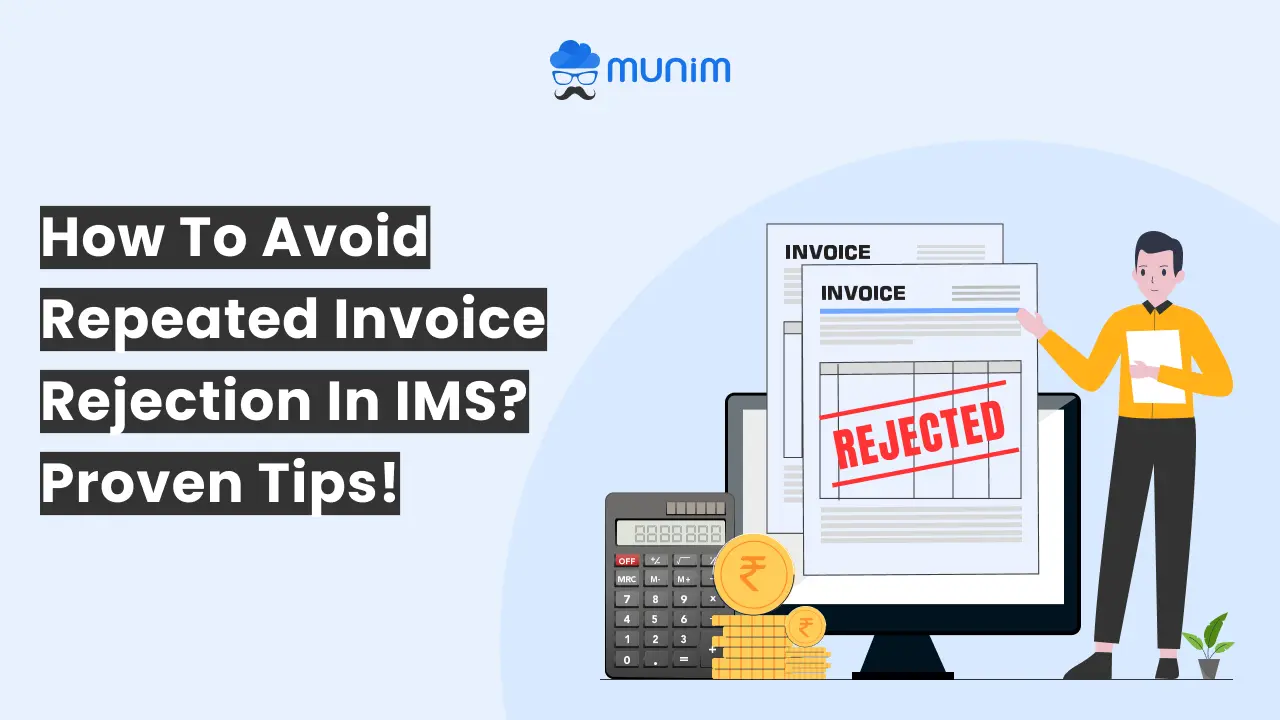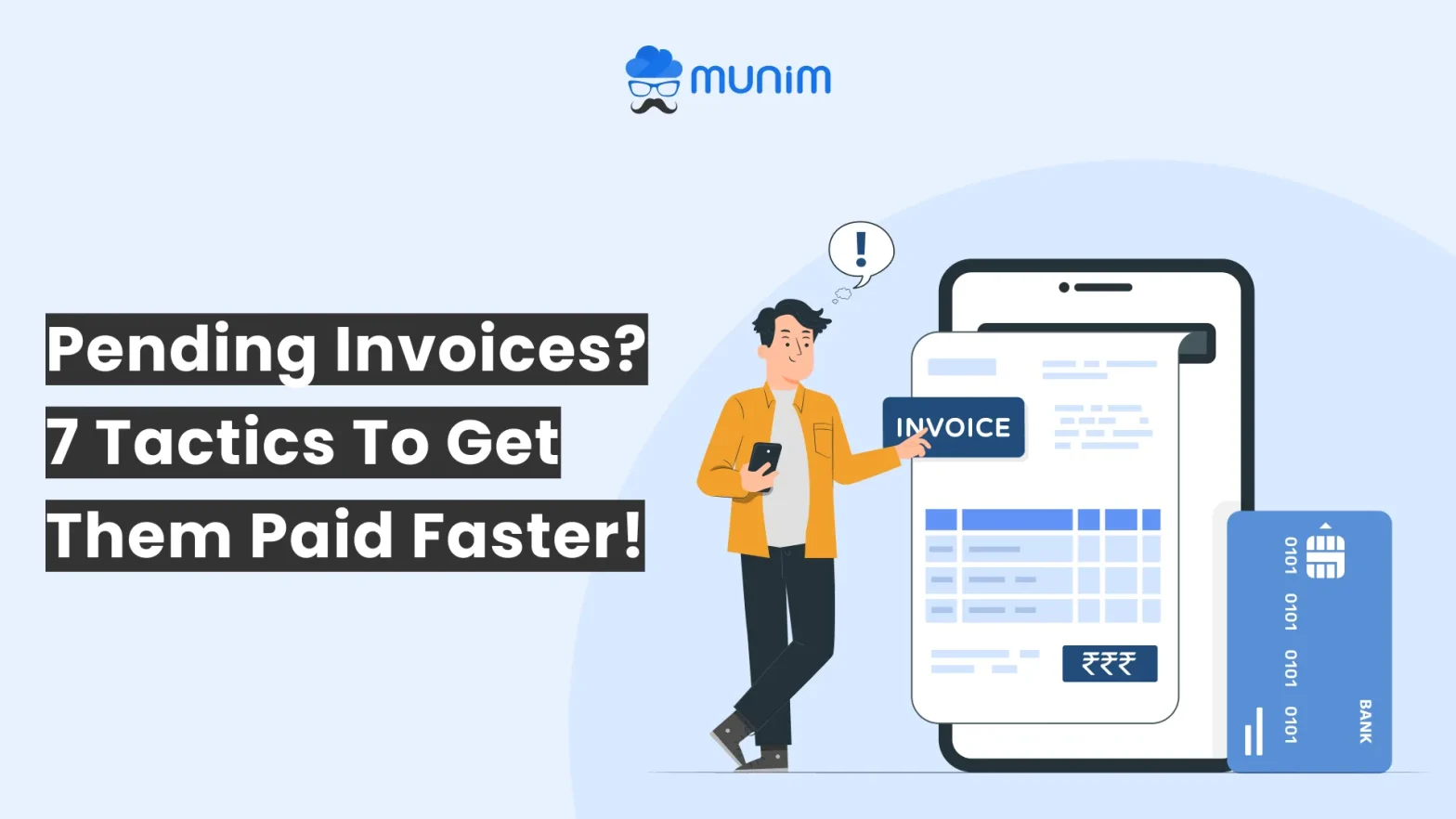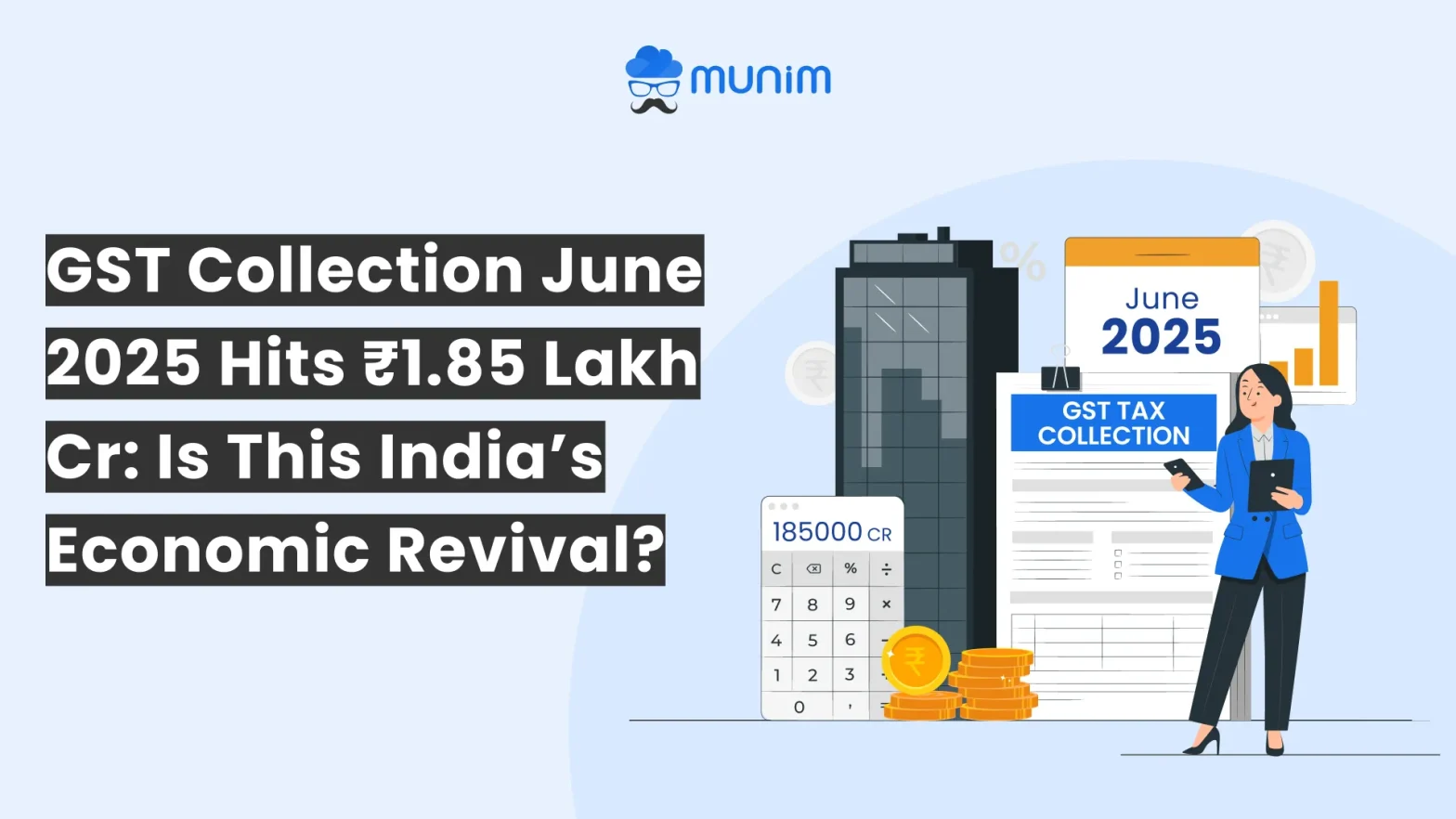How to Simplify Biz Finances With Accounting Software?
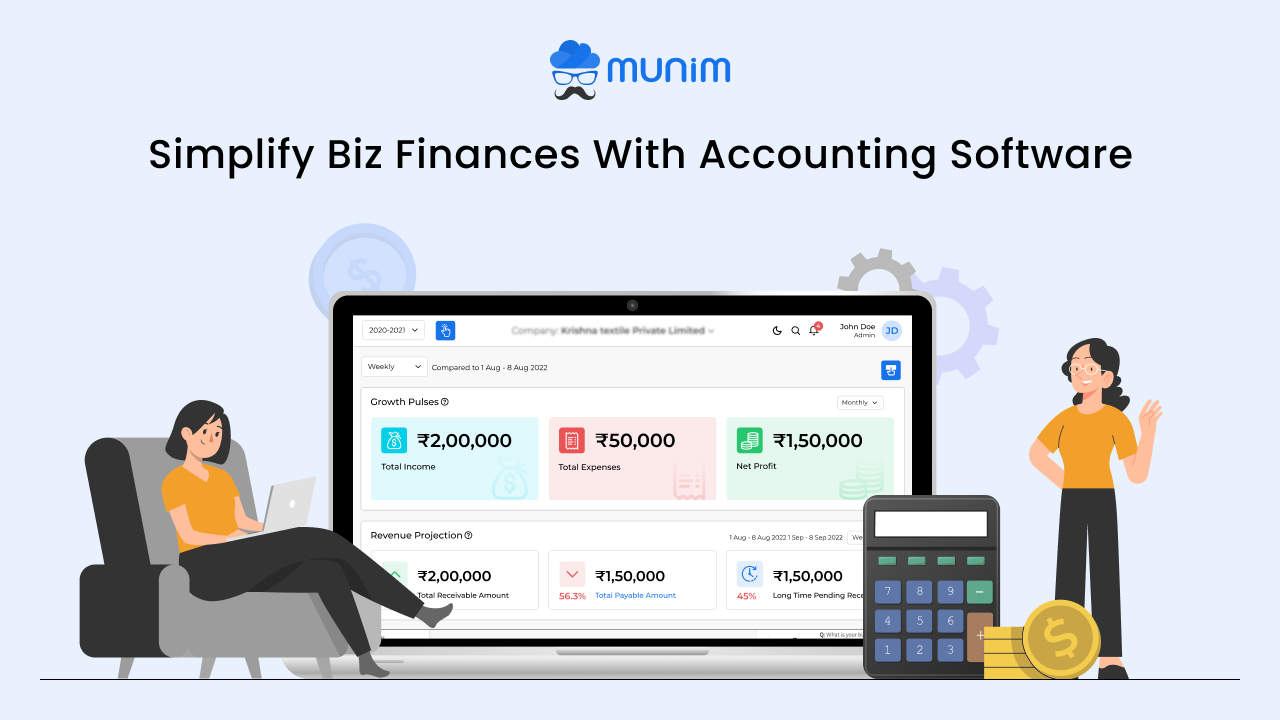
We live in a fast-paced world where opportunities can open up anytime. You don’t know where you would meet someone who is deeply interested in your business and willing to invest. It could be an airport, restaurant or any business event. In order to seize the opportunity, you need to keep your finances neat and clean. That’s where online accounting software, with its ability to streamline your financial management, can be a game-changer for your business.
In this blog, we will explore how digital accounting software can help streamline your business finance.
Accounting software simplifies business finances in 8 ways
#1 Managing billing and payments
The main purpose of implementing online billing software is to revolutionize, automate and digitize the invoicing and payment process. This software empowers you to create sleek, professional invoices in bulk with minimal time and effort.
Moreover, some digital billing software allows you to send invoices directly to your customers via WhatsApp or email and lets you track whether they have opened or not. With the application of such billing software features, you can stay on top of your receivables and ensure timely payments.
#2 Manage cash-flow efficiently
Startups and SMEs often struggle with cash crunch due to improper cash flow management. Situations like this may arise due to one of the following reasons:
- Not meeting up with sales goals
- Too many payables
- Delayed payments
- Ignoring financial reports
Now, with the implementation of online accounting software, small and medium business owners can solve this problem:
- Keep track of real-time cash flow statement
- Manage accounts systematically
- Know your breakeven point
- Collect receivables on-time
#3 Simplifies Bank Reconciliation
Bank reconciliation is the process of comparing the financial record of a company with its bank account statement. It is often done to find any data discrepancies. With accounting software, the process is simplified, and you can come to a conclusion without wasting time.
Here are the steps to do bank reconciliation:
Step – 1: Get the bank statement
Step – 2: Get the financial statements from the accounting software
Step – 3: Identify outstanding transactions
Step – 4: Identify any charges or interest
Step – 5: Compare deposits and withdrawals
Step – 6: Record discrepancies
#4 Stay compliant with taxation & regulatory requirements

An accounting software is a boon for business owners especially when they don’t have a budget for hiring tax professionals. The benefit of using digital accounting software is that it comes with features of GST compliance, which reduces the burden of calculation, manual paperwork and what not. You can generate or cancel e-invoices and e-way bills with just a click.
One of the most significant reasons for embracing online accounting software is that it aids you in staying compliant with the latest regulatory requirements.
#5 Collaboration & scalability
A business organization works in different departments. In order to run organizations smoothly, data exchange or in other words information sharing should happen efficiently. This is where online accounting software can help. For instance, the sales team has boarded a new client. Once the sales team updates client information on the accounting software then, the finance team can get in touch with the client to seek payment.
Talking about scalability, digital bookkeeping and accounting software are easily scalable solutions. You can add as many users as you want, assigning them a particular role among different departments.
#6 Financial reports management in real-time
Finance is all about data, unless you don’t understand from different perspectives it would be difficult to make the right decision. That’s why you need financial reports.
Not only it aids in decision making but banks, investors and other stakeholders also require such reports to know the financial health of your business.
Modern accounting and financial report management software are equipped with features to generate insightful reports in just a few seconds. This not only saves your time but also allows you to streamline your business finances on the go. With these time-saving features, you can focus on other aspects of your business, relieving you of the stress of financial management.
Here is the list of financial reports which are generally available in a digital accounting software:
- Balance sheet
- Cash flow statement
- Profit & loss statement
- Sales report
- Inventory report
#7 Data security
Data security matters the most for any organizations which are listed on the stock exchange. For such companies, financial data leakage is a nightmare because it can lead to huge losses in the company’s valuation and can create a sense of despondency among its shareholders.
With online accounting and bookkeeping software, there is no chance of data security breaches as they are protected from 128-bit encryption. To log in, you can opt for user authentication, which adds one more layer of security.
#8 Cloud-based solution
As technology is improving, business operations are also getting significantly easier than before. Conventional accounting software is restricted to a single terminal, which hinders its scalability. Also, if the system needs to be formatted for any reason, all your data will be lost.
On the other hand, cloud-based accounting solutions are flexible yet simple to use. With this type of accounting software, it is possible to scale easily. Additionally, it is not restricted to a single terminal; you can access your business financial data from any device. All you need is a stable internet connection.
Over to you
So this is how you can streamline your business finances with the use of online accounting software. We hope after reading this blog to know about the importance of using digital accounting software and will implement the same for your business. Stay tuned with us for interesting content on business finance.
Frequently asked questions on business accounting software
1. What are the different types of accounting software?
Ans – The following is the list of different types of accounting software:
- Billing & invoicing accounting software
- Commercial accounting software
- Enterprise accounting software
- Cloud accounting software
- Custom accounting software
2. Which app or software is the best for GST?
Ans – There are a number of accounting software in the market but the best is Munim GST – India’s leading GST accounting software.
3. What is the formula to calculate GST in Excel or Spreadsheets?
Ans – The formula to calculate GST in Excel/Spreadsheet is:
=Amount*(GST%)/100″
Here, amount = price of the product
GST% = applicable GST rate

